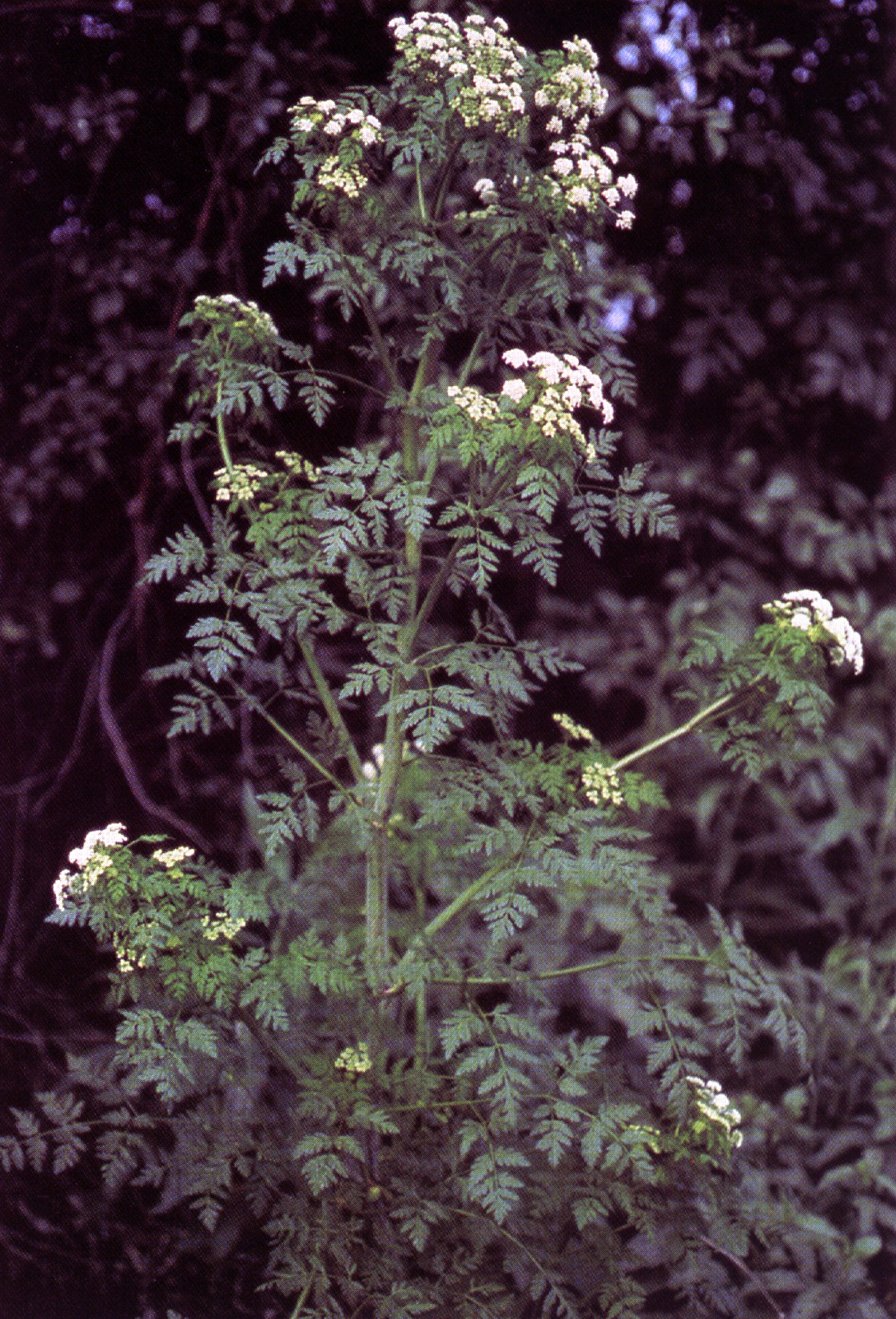Conium Alkaloids on:
[Wikipedia]
[Google]
[Amazon]

 Conium alkaloids are
Conium alkaloids are
(S)-(+)-Coniine Structural Formula V2.svg, (+)-Coniine
(2S,2'R)-(+)-Conhydrine Structural Formula V2.svg, (+)-Conhydrin
(3S,6S)-(+)-Pseudoconhydrine Structural Formula V2.svg, (+)-Pseudoconhydrin
Most Conium alkaloids are liquid at room temperature.''Brockhaus ABC Chemie'', VEB F. A. Brockhaus Verlag Leipzig 1965, p. 714.

 Conium alkaloids are
Conium alkaloids are natural product
A natural product is a natural compound or substance produced by a living organism—that is, found in nature. In the broadest sense, natural products include any substance produced by life. Natural products can also be prepared by chemical s ...
s of the piperidine alkaloid type.
Occurrence
Conium alkaloids are found in spotted hemlock. The mature fruits may contain up to 3.5% alkaloids.Eintrag zu Conium-Alkaloide. In: Römpp Online. Georg Thieme Verlag, retrieved 29 April 2020.Representative
The main alkaloid isconiine
Coniine is a poisonous chemical compound, an alkaloid present in and isolable from poison hemlock ('' Conium maculatum''), where its presence has been a source of significant economic, medical, and historico-cultural interest; coniine is also pro ...
. Other representatives are γ-conicein, conhydrin, pseudoconhydrin, and ''N''-methylconiin.
Properties
500 mg of coniin is fatal to a human. Coniin is the poison of the spotted hemlock. Poisoning results in nausea, vomiting, salivation, and diarrhea. Within half an hour to an hour, paralysis of the chest muscles occurs, which is fatal.History
In ancient times, aqueous extracts of this plant ('' hemlock cup'') were administered. In 399 BC,Socrates
Socrates (; ; – 399 BC) was a Ancient Greek philosophy, Greek philosopher from Classical Athens, Athens who is credited as the founder of Western philosophy and as among the first moral philosophers of the Ethics, ethical tradition ...
was sentenced to death by the cup of hemlock as a "free thinker and seducer of youth."
References
{{Reflist Alkaloids